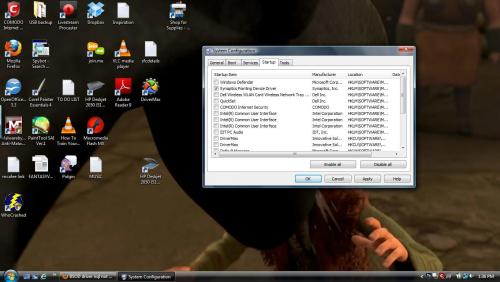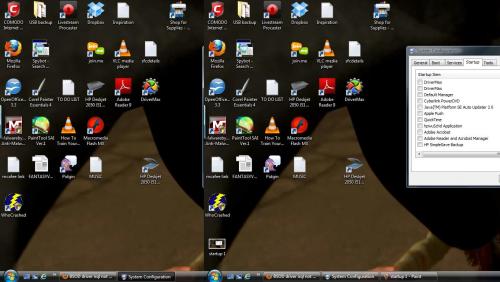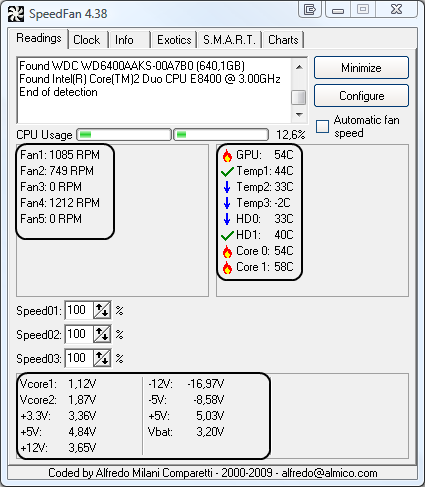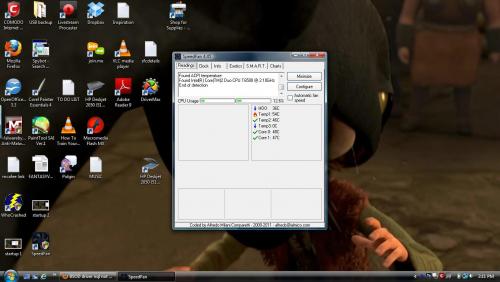Log Name: Application
Source: Microsoft-Windows-Wininit
Date: 2/8/2012 12:14:20 PM
Event ID: 1001
Task Category: None
Level: Information
Keywords: Classic
User: N/A
Computer: SarahSchowen-PC
Description:
Checking file system on C:
The type of the file system is NTFS.
Volume label is OS.
A disk check has been scheduled.
Windows will now check the disk.
216768 file records processed.
719 large file records processed.
0 bad file records processed.
0 EA records processed.
50 reparse records processed.
276568 index entries processed.
0 unindexed files processed.
216768 security descriptors processed.
Cleaning up 10 unused index entries from index $SII of file 0x9.
Cleaning up 10 unused index entries from index $SDH of file 0x9.
Cleaning up 10 unused security descriptors.
29901 data files processed.
CHKDSK is verifying Usn Journal...
33662928 USN bytes processed.
Usn Journal verification completed.
CHKDSK is verifying file data (stage 4 of 5)...
216752 files processed.
File data verification completed.
CHKDSK is verifying free space (stage 5 of 5)...
49263586 free clusters processed.
Free space verification is complete.
Windows has checked the file system and found no problems.
297170037 KB total disk space.
99698544 KB in 136961 files.
87752 KB in 29902 indexes.
0 KB in bad sectors.
329397 KB in use by the system.
65536 KB occupied by the log file.
197054344 KB available on disk.
4096 bytes in each allocation unit.
74292509 total allocation units on disk.
49263586 allocation units available on disk.
Internal Info:
c0 4e 03 00 db 8b 02 00 10 ad 04 00 00 00 00 00 .N..............
b9 08 00 00 32 00 00 00 00 00 00 00 00 00 00 00 ....2...........
30 c7 1f 77 00 00 00 00 50 23 c2 ff 00 00 00 00 0..w....P#......
Windows has finished checking your disk.
Please wait while your computer restarts.
Event Xml:
<Event xmlns="http://schemas.micro.../events/event">
<System>
<Provider Name="Microsoft-Windows-Wininit" Guid="{206f6dea-d3c5-4d10-bc72-989f03c8b84b}" EventSourceName="Wininit" />
<EventID Qualifiers="16384">1001</EventID>
<Version>0</Version>
<Level>4</Level>
<Task>0</Task>
<Opcode>0</Opcode>
<Keywords>0x80000000000000</Keywords>
<TimeCreated SystemTime="2012-02-08T18:14:20.000Z" />
<EventRecordID>4061</EventRecordID>
<Correlation />
<Execution ProcessID="0" ThreadID="0" />
<Channel>Application</Channel>
<Computer>SarahSchowen-PC</Computer>
<Security />
</System>
<EventData>
<Data>
Checking file system on C:
The type of the file system is NTFS.
Volume label is OS.
A disk check has been scheduled.
Windows will now check the disk.
216768 file records processed.
719 large file records processed.
0 bad file records processed.
0 EA records processed.
50 reparse records processed.
276568 index entries processed.
0 unindexed files processed.
216768 security descriptors processed.
Cleaning up 10 unused index entries from index $SII of file 0x9.
Cleaning up 10 unused index entries from index $SDH of file 0x9.
Cleaning up 10 unused security descriptors.
29901 data files processed.
CHKDSK is verifying Usn Journal...
33662928 USN bytes processed.
Usn Journal verification completed.
CHKDSK is verifying file data (stage 4 of 5)...
216752 files processed.
File data verification completed.
CHKDSK is verifying free space (stage 5 of 5)...
49263586 free clusters processed.
Free space verification is complete.
Windows has checked the file system and found no problems.
297170037 KB total disk space.
99698544 KB in 136961 files.
87752 KB in 29902 indexes.
0 KB in bad sectors.
329397 KB in use by the system.
65536 KB occupied by the log file.
197054344 KB available on disk.
4096 bytes in each allocation unit.
74292509 total allocation units on disk.
49263586 allocation units available on disk.
Internal Info:
c0 4e 03 00 db 8b 02 00 10 ad 04 00 00 00 00 00 .N..............
b9 08 00 00 32 00 00 00 00 00 00 00 00 00 00 00 ....2...........
30 c7 1f 77 00 00 00 00 50 23 c2 ff 00 00 00 00 0..w....P#......
Windows has finished checking your disk.
Please wait while your computer restarts.
</Data>
</EventData>
</Event>




















 Sign In
Sign In Create Account
Create Account

